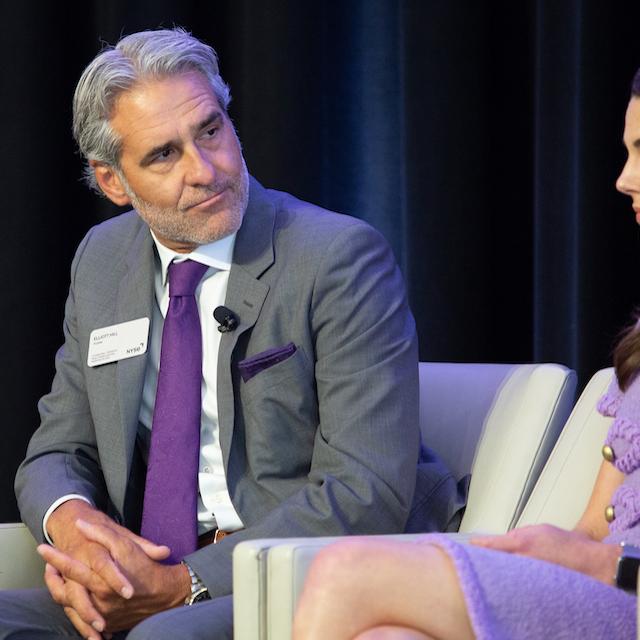Nike, a global leader in athletic footwear and apparel, has long been synonymous with innovation and excellence. However, even industry giants face challenges, and in recent years, the company has encountered a period of slowed growth and shifting consumer preferences. In response, Nike has appointed Elliot Hill as its new CEO, tasking him with steering the brand back to its roots while embracing modern demands. This turnaround plan comes at a critical time, with Nike needing to redefine its identity and reconnect with its core audience in the face of fierce competition and internal restructuring. Follow us at Gen Z Collar Necklaces Are Gonna Be Bigger & Bolder In 2025.
Elliot Hill
Elliot Hill brings decades of experience to his role as Nike’s new CEO. Having spent significant years within the company, Hill’s leadership style is deeply informed by an understanding of Nike’s foundational values and the contemporary market dynamics that shape consumer behavior. Known for his innovative approach and ability to inspire teams, Hill is already setting the tone for a new chapter in Nike’s storied history. His focus is clear: revitalize the brand’s connection with its heritage of athleticism while innovating to capture the imaginations of new generations of consumers.

Hill’s leadership philosophy is rooted in collaboration and adaptability. By engaging with stakeholders across all levels of the company—from designers to retail teams—he seeks to foster a culture of inclusion and creativity. This approach aims to not only reinvigorate Nike’s internal dynamics but also ensure that the brand’s strategies resonate authentically with its audience.
Related: Gen Z 10 Viral Beauty Products Of 2024
Related: Chriselle Lim 7days Beauty Product For Clear Skin
The Turnaround Plan
Elliot Hill’s turnaround plan for Nike revolves around three key pillars: rekindling the brand’s obsession with sport, leveraging digital innovation, and prioritizing sustainability. Each of these elements is designed to address specific challenges and opportunities that Nike faces in the current landscape.
Rekindling the Obsession with Sport
Nike’s identity has always been deeply intertwined with athleticism and performance. However, critics argue that the brand has, in recent years, shifted its focus too heavily towards lifestyle and fashion, at times losing sight of its core mission. Hill’s strategy aims to recalibrate this balance by placing sport back at the center of Nike’s narrative. This includes investing in grassroots sports programs, sponsoring emerging athletes, and creating products that prioritize performance over aesthetics.
Leveraging Digital Innovation
The digital revolution has transformed the way consumers interact with brands, and Nike is no exception. Hill’s plan emphasizes the expansion of Nike’s digital footprint, including its direct-to-consumer (DTC) channels and mobile app ecosystem. Enhanced personalization, virtual try-ons, and AI-driven recommendations are set to become staples of the Nike shopping experience, ensuring that customers receive tailored interactions at every touchpoint.
Prioritizing Sustainability
Sustainability is no longer optional for global brands, and Nike recognizes this imperative. Under Hill’s leadership, the company is doubling down on its Move to Zero initiative, which seeks to achieve net-zero carbon emissions and waste. This commitment extends to product design, supply chain practices, and packaging, aligning with the values of environmentally conscious consumers and positioning Nike as a leader in sustainable innovation.
8 Percent Drop in Revenue
One of the most pressing challenges facing Hill is addressing Nike’s recent financial performance. The company reported an 8 percent drop in revenue, a stark reminder of the vulnerabilities even market leaders face. This decline has been attributed to a combination of factors, including supply chain disruptions, changing consumer behavior, and increased competition from brands like Adidas and Under Armour.
Hill’s response to this financial dip is both pragmatic and ambitious. By streamlining operations and reallocating resources to high-growth areas, he aims to stabilize revenue streams while setting the stage for long-term growth. Additionally, the emphasis on digital sales channels is expected to offset losses from traditional retail, capitalizing on the e-commerce boom.
Nike’s Lost Obsession with Sport
For decades, Nike’s branding revolved around the ethos of athletic excellence, encapsulated in campaigns like “Just Do It” and partnerships with iconic athletes such as Michael Jordan and Serena Williams. However, in its pursuit of broader appeal, the company has been accused of diluting this focus, leaning heavily into lifestyle marketing. Elliot Hill’s vision seeks to reignite Nike’s passion for sport, ensuring that the brand’s offerings resonate with professional athletes and everyday fitness enthusiasts alike.
This renewed focus is reflected in product development, with an emphasis on cutting-edge athletic footwear and apparel designed to enhance performance. Nike is also exploring collaborations with sports scientists and leveraging wearable technology to create products that push the boundaries of innovation